18 UAE mega projects that will change the world in the next 100 years
AI, robot taxis and a colony on Mars…
The pace of the UAE’s rise to prominence on the world stage is impressive by any measure. It was a feat made possible, at least in part, by the clarity of vision behind the drive to build and thrive. And it’s a vision that has itself evolved, along with the country’s shifting set of skylines, with a focus now firmly aimed beyond the horizon.
The UAE’s Future Roadmap, reveals a phased blueprint – with aimed completion dates attached to key technological, health, education, infrastructure, tourism, science, cultural and environmental milestones.
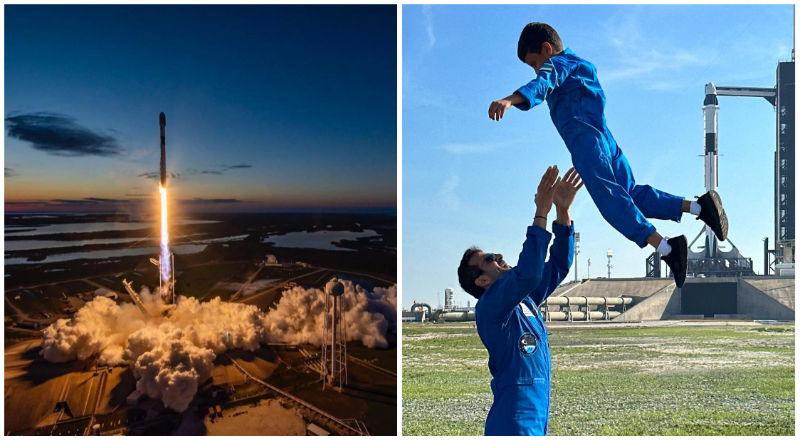
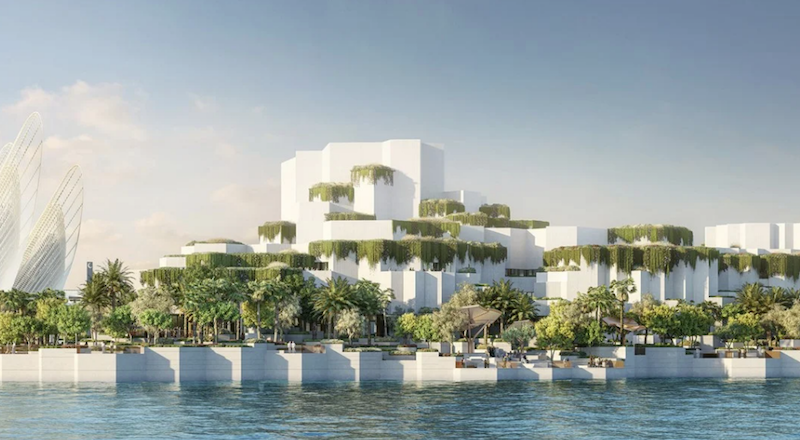
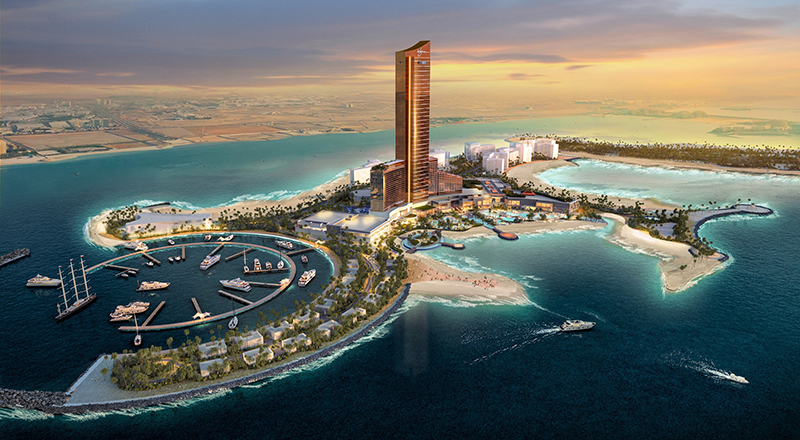

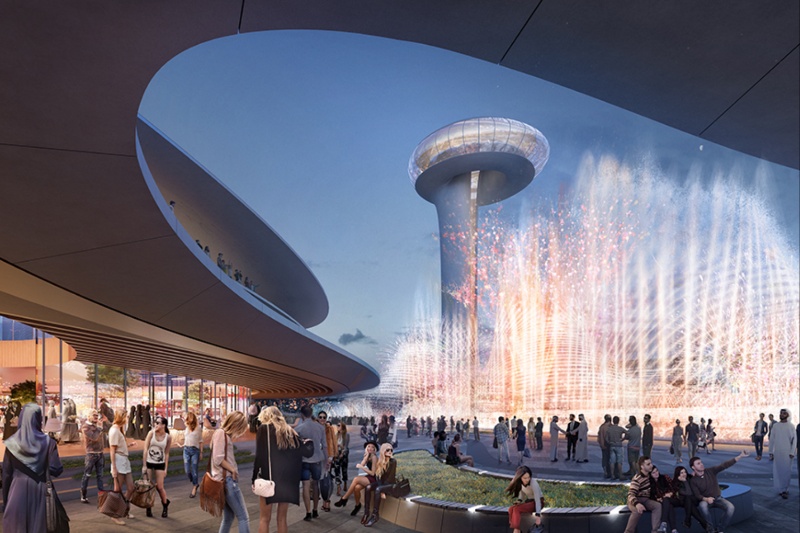
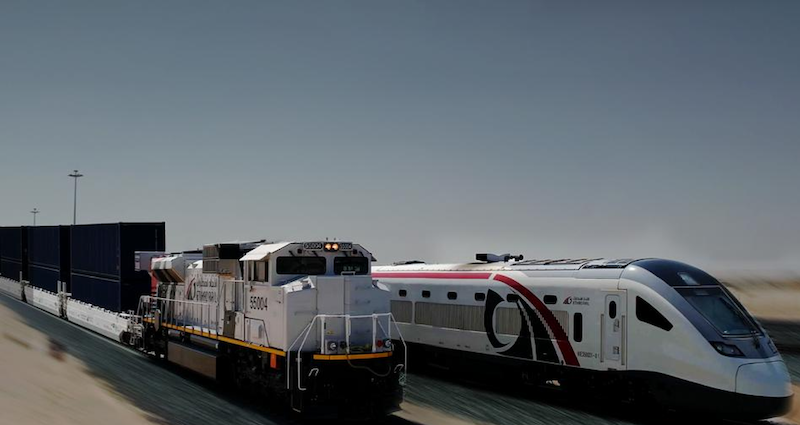
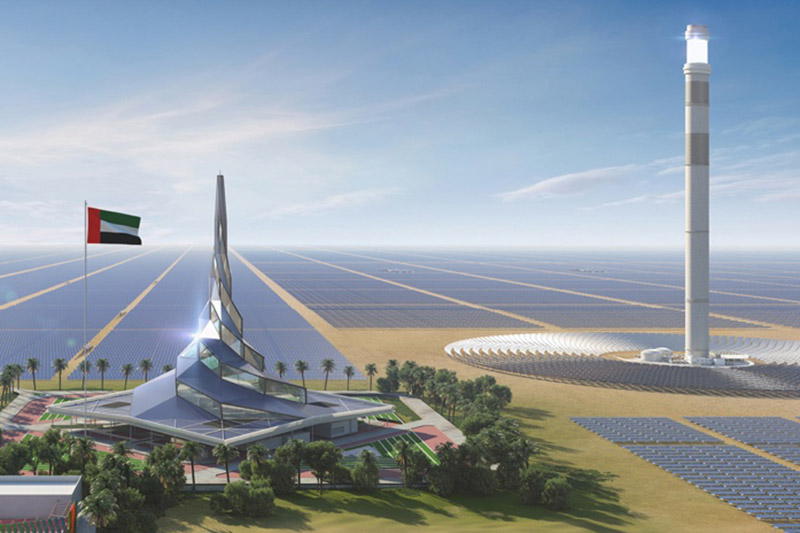
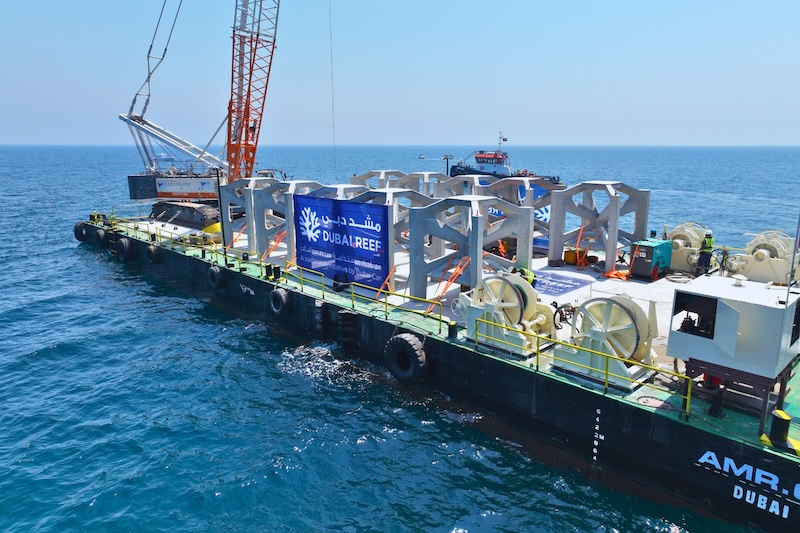
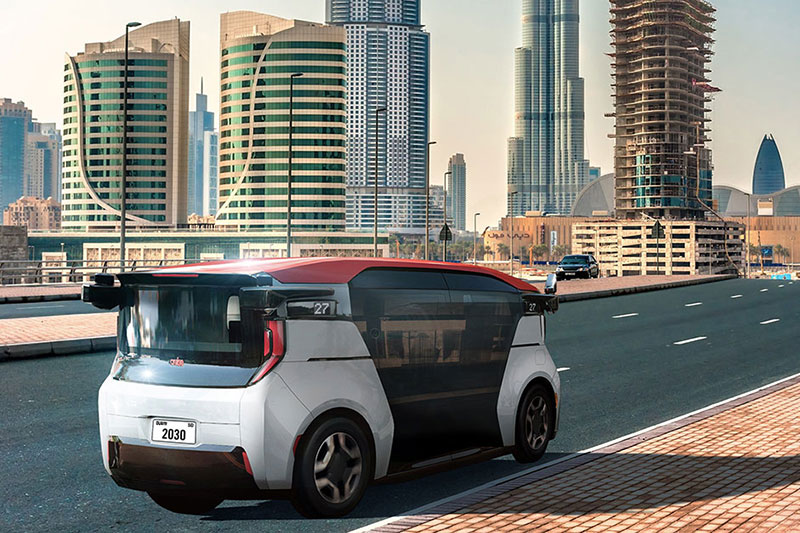

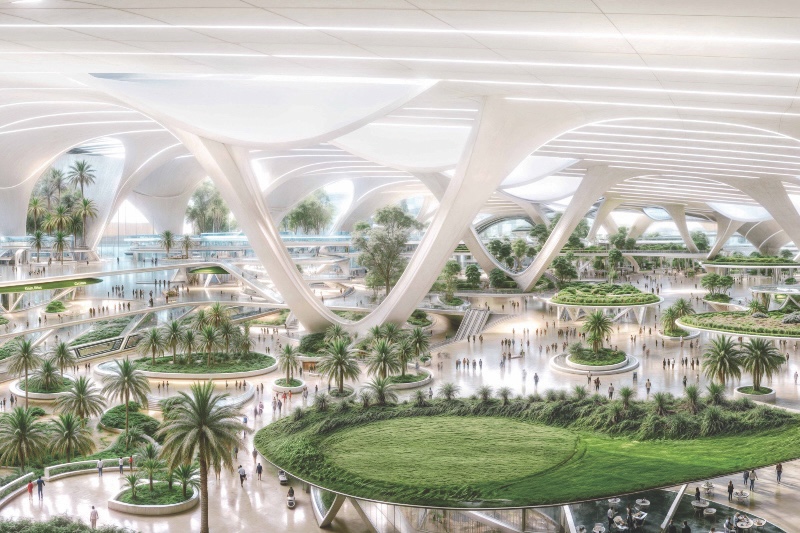
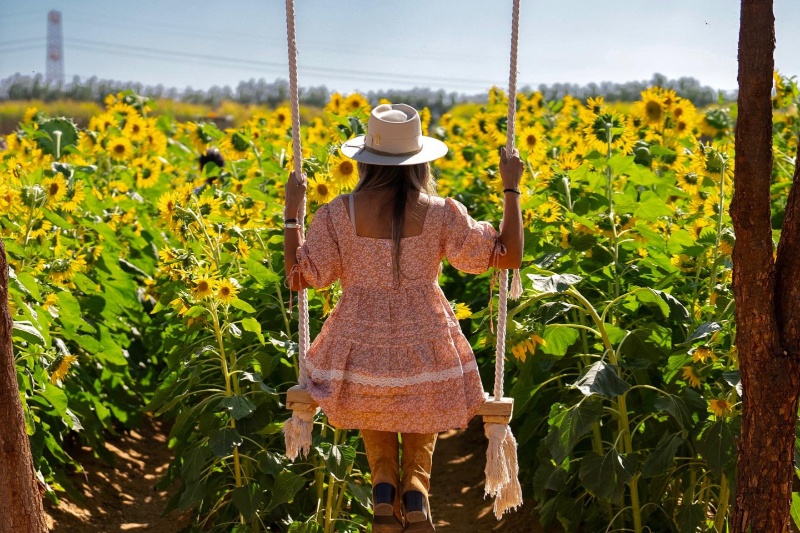
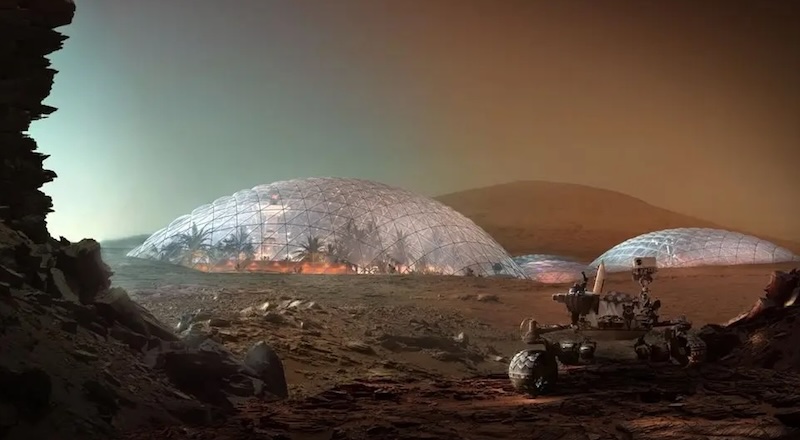
















SpaceX
Blast off! A UAE lunar rover will be taking on moon rock wadi bashing duties very soon. More details below
Natural History Museum, Abu Dhabi
The Natural History Museum in Abu Dhabi will be one of multiple heritage linchpins in the Saadiyat Cultural District
Asteroid chase
The UAE aims to land a spacecraft on an asteroid in 2028
Aljada Sharjah
Aljada is a new leisure and entertainment megaproject in Sharjah
Etihad Rail
A new rail service will revolutionise travel in the region. There are also plans for a super luxe rail Cruise on the Etihad Rail line
Dubai Solar Park
Although the initial phases are already in operation, work on the he Mohammed bin Rashid Al Maktoum Solar Park, the largest single-site solar park in the world should be complete by 2030
The Dubai Reef
The Dubai Reef, coming in 2027, the world’s largest marine reef development
RTA Driverless taxi
Self driving taxis are coming to UAE streets as part of the Dubai Autonomous Transportation Strategy
Artificial intelligence
The UAE Strategy for Artificial Intelligence was launched in 2017 and is fixed on ensuring that all future government services, sectors and infrastructure projects will be powered by AI by 2031
Al Maktoum Airport
By 2050 Dubai World Central (DWC) in Dubai South will see it become the world’s largest airport
Emirates Bio Farm
The UAE has big plans for food security and rural redevelopment. Read our recent feature on Sheikh Hamdan's new countryside megaproject
The UAE’s manned mission to Mars
Mission to eMAARS. Red planet here we come.
All of which will be achieved in line with the UN’s Sustainable Development Goals, and made possible by the UAE’s continued wise and adaptive governance, by remaining at the forefront of the future tech revolution, and through the strategic fostering of native and international talent.
2024 – to the moon

Kicking things off with ‘a giant leap’ for the UAE’s space story – the UAE should, by the end of the year, have completed work on a 100 per cent Emirati-made lunar rover and sent it all the way to the moon. This lunar mission will include a direct research component as well as an opportunity to test space tech and stand as a sort of a dry run for a manned mission to Mars.
2025 – A culture of growth

Expected to open with Saadiyat’s cultural district soon, The Natural History Museum promises to illuminate the universe’s 13.8 billion years of origin story through interactive exhibits. Amongst the flagship collection of objets d’awe, we find Stan, a 67-million-year-old tyrannosaurus rex skeleton; and the seven-billion-year-old Murchison Meteorite. In the same year, and same Abu Dhabi neighbourhood – we’re also expecting to see the doors of the Guggenheim, and Zayed National Museum open.
2027 – Reef-furb
The Dubai Reef project, the world’s largest marine reef development, will roll out 600sqkm of artificial coral structures stretching across Dubai’s coastal waters. Once finished in 2027, there are expected to be 20,000 purpose-built reef modules of various sizes, creating a protected marine habitat where aquatic life can thrive.
2027 – The house always Wynns

Slotting together nicely in Ras Al Khaimah, Wynn Al Marjan Island is all set to be the UAE’s first “integrated gaming resort in the Middle East North Africa (MENA) region”. Its tower will peak at an impressive 300 metres above the sea. To give you a sense of scale, the tallest building on Palm Jumeirah, Palm Tower, is 240 metres high – and its views are absolutely mesmeric. Private vacationing space extends to 1,542 rooms and suites, along with 22 private villas and the projected specs suggest a portfolio of “22 dining and lounge experiences”.
2028 – chasing space rocks
In a project that sounds eerily similar to the plot of Armageddon, the UAE’s next grand space adventure in 2028 will involve a five-year, 3.6 billion-kilometre interplanetary yomp. The destination? An asteroid belt between Mars and Jupiter. The objective? To land a spacecraft on an asteroid. If achieved, it will mean the UAE becomes just the fourth nation to have ever achieved that particular goal.
2028 – Super-Sharjed
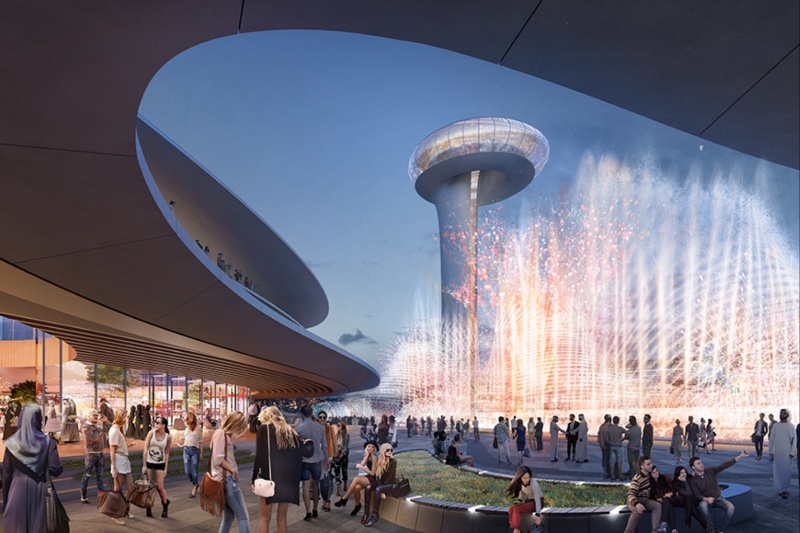
Construction is already well underway on Sharjah’s ambitious megaproject, Aljada. It will be home to hotels, schools, a shopping mall, a business district, an observation deck, an entertainment complex designed by Zaha Hadid Architects, and much more. Described as the “Downtown of New Sharjah”, it is set for completion by 2028.
2029 – Raily exciting travel
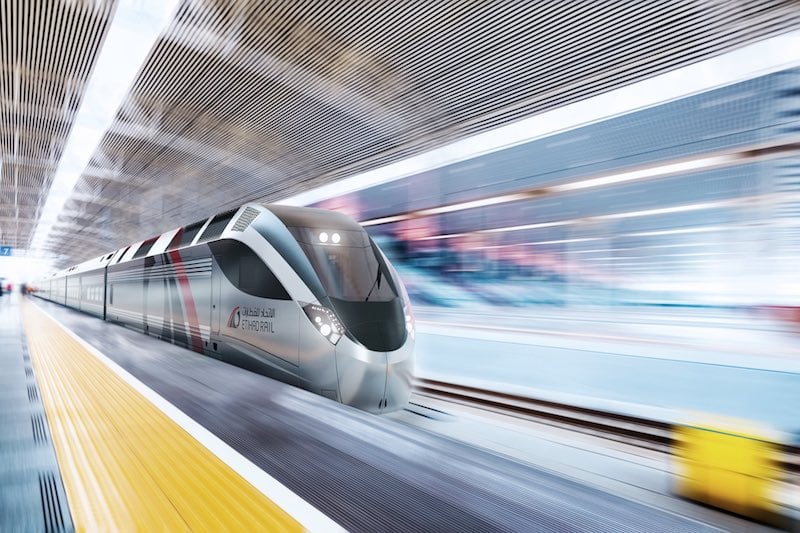
There’s something deeply romantic about rail travel. Getting your ticket punched and powering through grand panoramic vistas, the rhythmic sway of carriages rocking you towards your final destination. And it’s this misty-eyed reverie that’s at the heart of one of the UAE’s most ambitious travel projects… the 900km long Etihad Rail network. The endeavour will stitch the seven emirates together before extending beyond our borders into the rest of the GCC. Whilst the freight component is already live and pushing ahead full steam, there is no firm completion date for the passenger service, other than we’ve been told it’s on track to be transporting 36.5 million passengers annually, by 2030.
2030 – harnessing the power of the sun
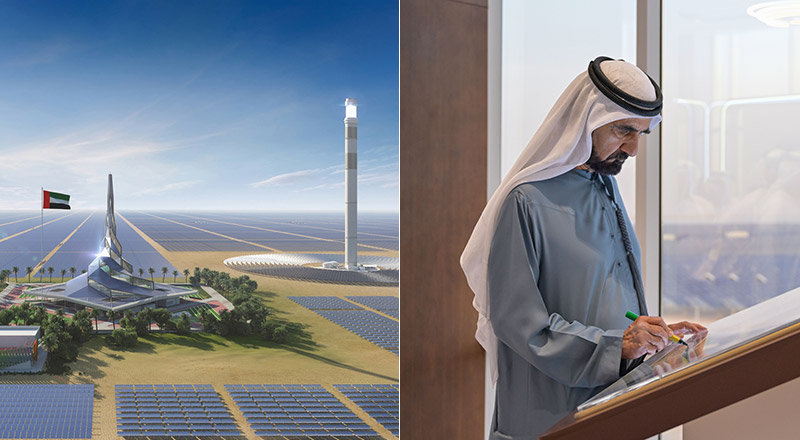
The “largest single-site solar park in the world”, the Mohammed bin Rashid Al Maktoum Solar Park is on schedule to reach a massive 5,000 MW by 2030 (enough to power roughly four million homes).
2030 – no-ffeur

The Dubai Autonomous Transportation Strategy is shooting for 25 per cent of Dubai’s total transportation to be autonomous by 2030. Sideline benefits include an expected reduction in carbon emissions and accidents.
2030 – control P
The Dubai 3D Printing Strategy began in 2017, but hopefully by 2030 – the printed fruits of the campaigns labour will be visible, with a stated goal that Dubai will become a hub for the 3D printing world.
2031 – AI Robot
The UAE Strategy for Artificial Intelligence (AI) was launched in 2017 and is fixed on ensuring that all future government services, sectors and infrastructure projects will be powered by AI by 20231. To help get there, the government will invest heavily in cutting-edge AI technology and tools.
2033 – seeing double
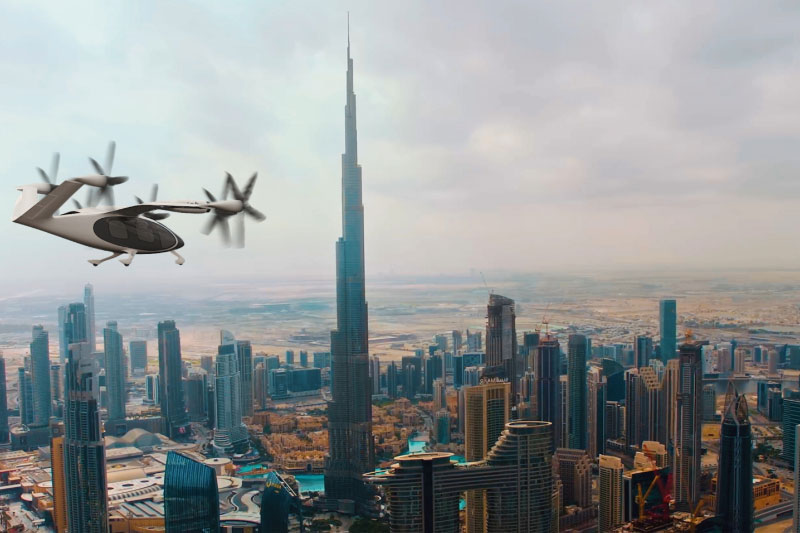
The operational mandate of the Dubai Economic Agenda is to double the economy size of Dubai (to Dhs32 trillion) by 2033, cementing Dubai’s position as one of the top three cities globally. 100 individual transformation projects will form the backbone of this policy.
2040 – back to the Fujairah
An ambitious scheme for a sometimes overlooked region of the UAE, the Fujairah 2040 Plan will improve the emirate’s roads, water barriers, ports and include new build residential complexes, healthcare facilities, and a seaport.
2040 – all part of the master plan
Also due to hit maturity in 2040, the Dubai Urban Master Plan was founded on a series of targets that will see the city double in size; as well as growing its green roots with a pledge that rural natural areas will constitute 60 per cent of the emirate’s total area. There will be a focus on developing sustainable transport infrastructure, making it easier for pedestrians and bike users to navigate the city. The land set aside for hotels and tourist activities should have increased by 134 per cent and the total availability of public beach coastline will have expanded by 400 per cent.
2041 – Waste not want not
A collection of individual projects – including recycling and waste-energy endeavours – are tied together as part of the Integrated Waste Management Strategy, which is earmarked for a 2041 sign-off date.
2050 – Juice cleanse
In an ambitious move for a state so blessed with natural fuel resources, the Clean Energy Strategy will see the UAE leverage multiple forms of green and renwable energy to the extent that, by 2050, it will supply 75 per cent of the country’s energy needs.
2050 – Plane sailing

Plans have been announced to continue the expansion of Al Maktoum International Airport, also known as Dubai World Central (DWC) in Dubai South, which will see it become the world’s largest airport. It currently has a five to seven million passenger capacity but upon completion, it will serve more than 260 million passengers. Its completion date is set to 2050, but plans are in place for Phase 1 to be complete by 2030 where it will support an annual capacity of 130 million. Phase 1 will include the completion of two more runways, Concourse 1 and the West Terminal building. The airport will also include a plethora of retail, food and beverage, relaxation and entertainment facilities.
2051 – Farmville
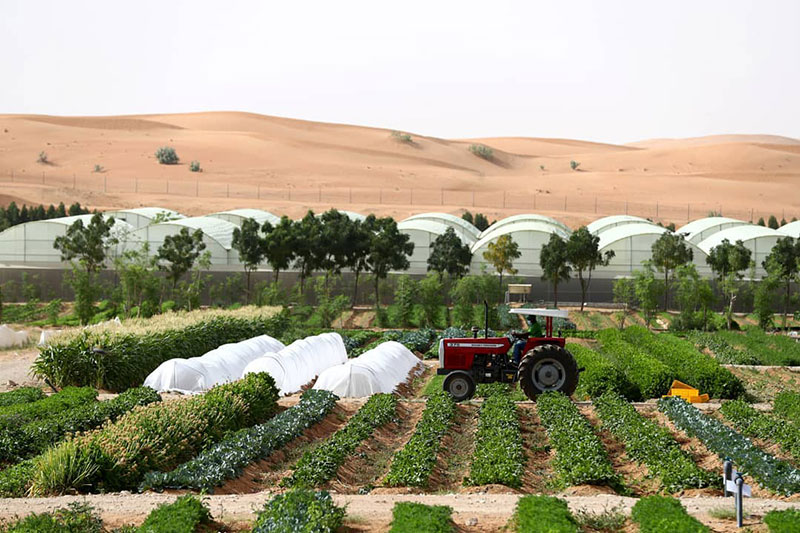
The UAE has targeted the year 2051 for it to achieve the title of “the world’s best country in the Global Food Security Index”. This means expanding self-sustaining, technology-enhanced farming practices; firm international trade partnerships; enhancing nutritional intake and reducing food loss and waste.
2117 – setting the Mars bar
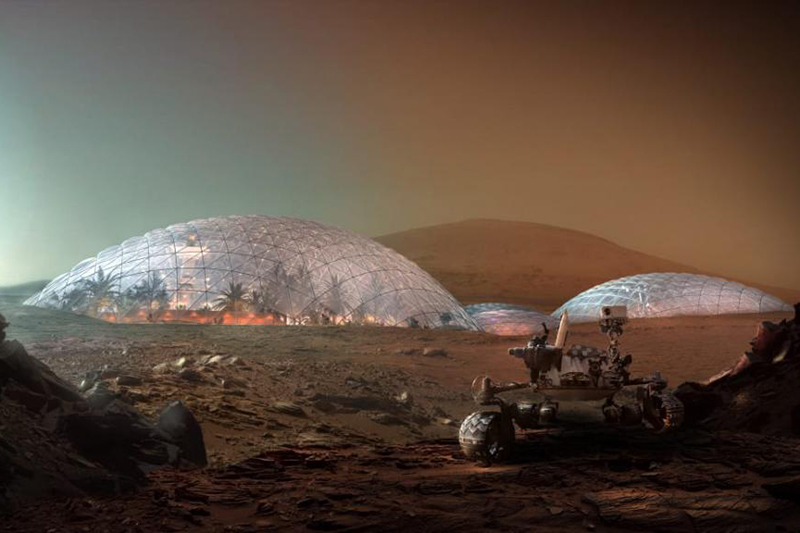
This is the pledge, shared in 2017 that within a century, the UAE will have established “the first inhabitable human settlement on Mars”. It’s a huge goal, but judging by the space strides already made by the UAE and the Mohammad Bin Rashid Space Centre, it’s entirely within reach.
Images: What’s On Archive
